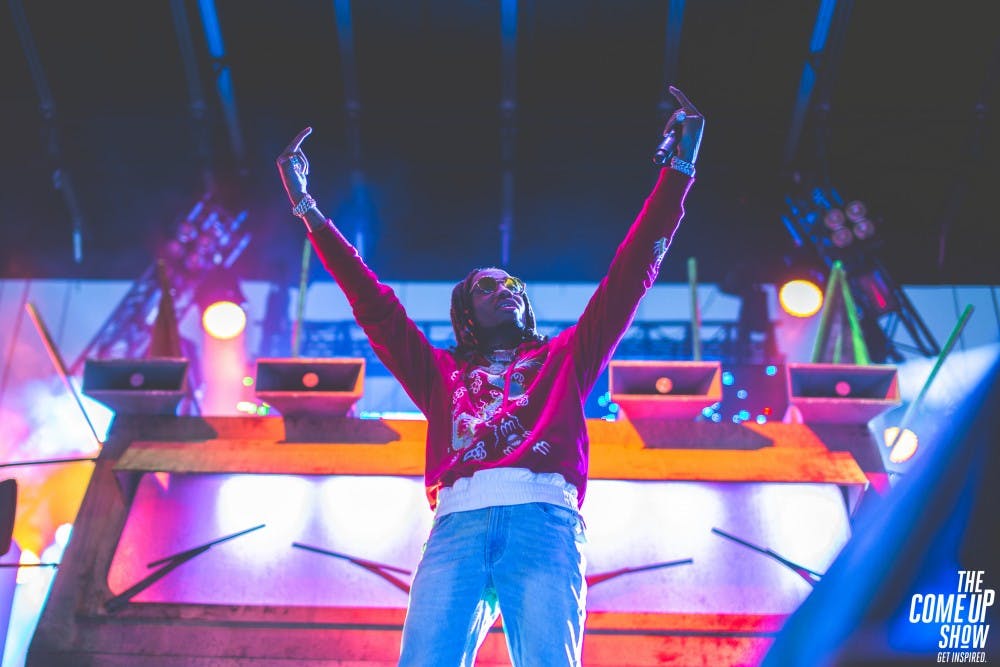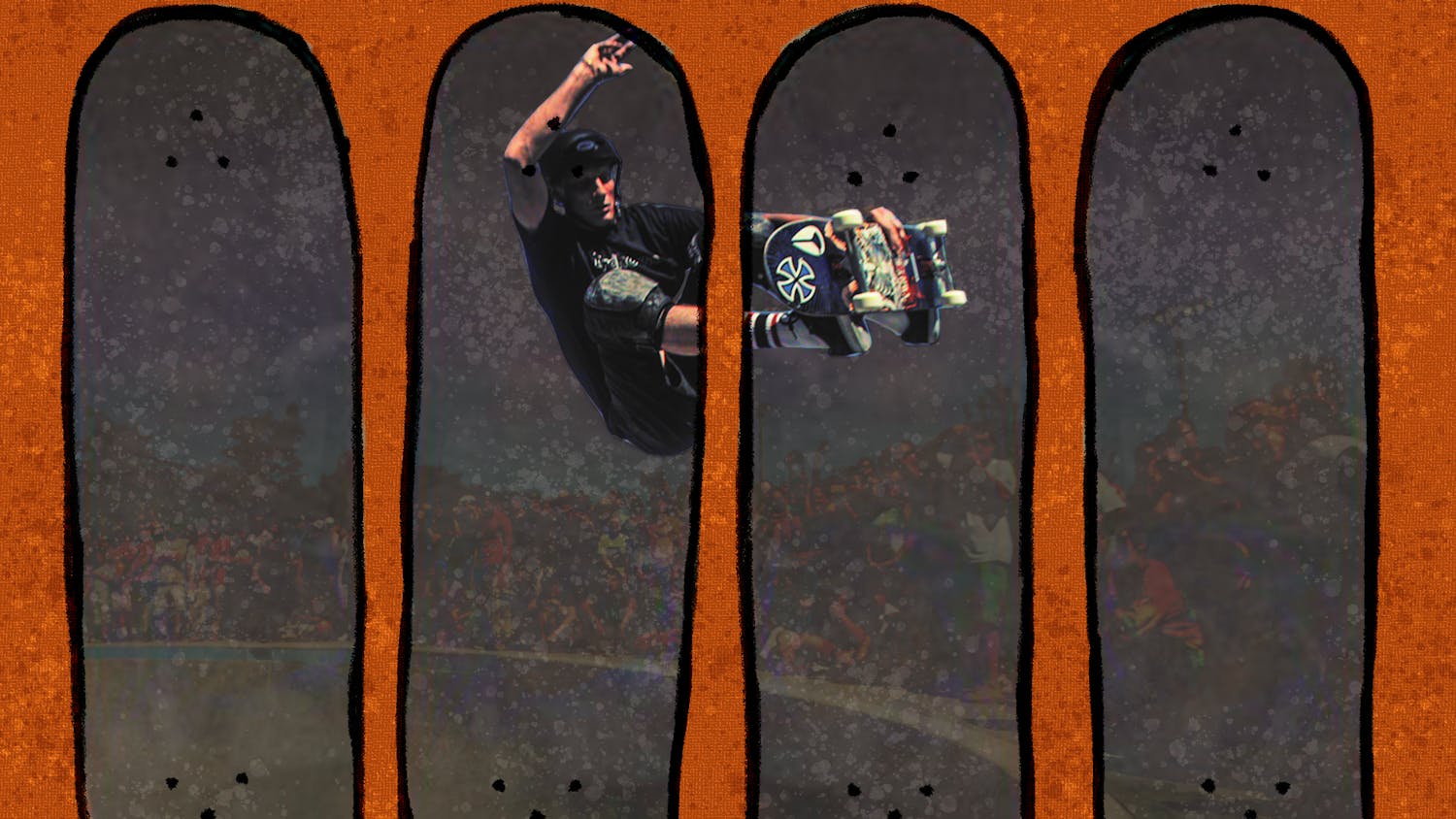To quote a tweet I saw the other day: “Every time I remember that Lil Pump is a 17–year–old who got rich and famous for saying ‘Gucci gang’ for three minutes, I have to remind myself that life is a meaningless simulation in order to calm down.” Yes, that last part might be a little dark and hyperbolic, but the point remains the same.
As I struggle to listen to “Gucci Gang,” I cringe at Pump’s inability to sound coherent. About half of the song is repetition of the titular phrase, while the other half is a motley collection of slurred sentences where about one in every five words is audible. However, this pile of toasted garbage has somehow peaked at number three on the Billboard Hot 100, in large part due to its catchy beat and hook.
Perhaps it’s simply a reflection of a progressive “dumbing down” of the American youth, but the mumble rap subgenre has taken over the hip–hop (and arguably the music) industry. Artists such as Future, Migos, Desiigner, and 21 Savage have become rich and famous in spite of their lyrically incomprehensible deliveries. I refuse to support them, and you shouldn’t either. Here’s why:
It’s an Insult to Talented Rap Artists
To clarify, I’m not saying that these musicians are entirely talentless. I’m simply arguing that there are countless other individuals who are far more gifted and therefore deserve greater recognition and support. It’s shameful that Desiigner became an internet phenomenon through viral songs such as “Panda” and “Tiimmy Turner,” both of which are essentially repetitions of the same ten lines over and over again. It took skilled lyricists such as Kendrick Lamar and J. Cole years to attain global stardom, yet the music video for “Gucci Gang” already has more views on YouTube than any of their tracks. Imagine struggling for lengthy periods of time to develop clever lyrics, conscious content, and intricate flows, only for a random teenager without any of those endowments to become famous overnight. It’s frustrating.
It (Actually) Glamorizes Drug Use
Last July, Pump tweeted that “Xanax is the new wave” and received over 8,000 retweets and 25,000 likes. While he appears to have changed his mind regarding the well–known prescription drug in a recent Instagram video, there’s a clear obsession with it and similar medications as sources of recreation among his contemporaries. For instance, Future makes countless references to his use of Xanax and codeine in his music. This is problematic–artists such as A$AP Yams, Lil Peep, and Fredo Santana have died after dealing with drug abuse. It’s a terrible example to set and a horrible influence on one’s fans. If fellow musicians such as Chance the Rapper and Vic Mensa feel the need to criticize the genre’s glorification of painkillers and caution their own supporters regarding personal struggles with addiction, you know mumble rap is an issue.
It Reinforces Negative Stereotypes about Hip–Hop
To people who dislike hip–hop music, mumble rap is a perfect scapegoat. The industry has attempted to wash itself clean of decades of homophobia as well as the notion that emcees solely talk about women, money, and drugs. However, a number of mumble rappers have reinforced these associations instead. Migos recently came under fire for homophobic lyrics in a new song, while Future’s feature on “Devotion” by FBG Wookie contains lyrics about pills and misogynistic approaches towards women. Make no mistake—hip–hop as a whole has tried to change its image as it has become more mainstream, but mumble rap is making this process difficult.
I understand that this opinion probably falls on deaf ears—appealing instrumentals and choruses always seem to triumph over lyricism and content quality when it comes to album sales. Still, the next time you hear 21 Savage on the radio, I urge you to consider the points I’ve made and perhaps change the station. Mumble rap needs to go.







